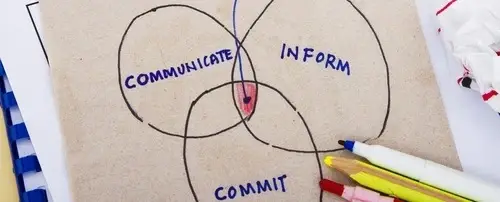So You’ve Started A Pro Bono Project…Now What?

A while ago I wrote about the benefits of doing pro bono work and some tips on how to get started. Whether you are looking to switch sectors or are new to a field, volunteering your skills to help an organization you’re passionate about can help you expand your network, strengthen skills, and explore new opportunities.
Many of you wrote to me saying that you were eager to do pro bono work, but not sure how to manage a project. Once you’ve contacted an organization or are set up through an intermediary like Taproot or Catchafire, how do you manage your time and the project successfully?
First, before diving into any work, ensure that you have defined the scope of workwith your nonprofit partner. Confirm that you are both comfortable with the terms and conditions and that you are aware of benchmarks, deadlines, and communication styles. This is the first, and perhaps the most important, step in creating a smooth process.
Once you do that, keep the following tips and tools in mind to create a mutually beneficial project that leaves both you and the organization pleased.
Embrace virtual meetings
Whether your pro bono partner is down the street or across the country, it can be difficult to find time to meet in person. So set up a time to meet with your contact using Skype or Google Hangouts. You can also explore collaborative virtual tools like Yammer or Evernote to avoid clogging up either of your inboxes and providing a neat trail of your discussions.
Stay on track
At every meeting, come prepared with questions and suggestions; you may even want to create a brief agenda for the meeting and email it ahead of time. Your time and your client’s time are valuable – make the very most out of every meeting and keep it brief as possible without rushing. Always outline further action steps for yourself and the pro bono client. Connect when you have some progress to share, but haven’t done so much that they cannot make changes or provide feedback on your work.
Document everything!
As an outsider to your pro bono organization, you bring a fresh perspective, different skills, and many new ideas. Find ways to document your feedback, processes, and resources so that the client can refer back to after you have completed your project. Don’t overwhelm them with technical jargon or lengthy paragraphs. Stick to free/low cost resources, instructions for future use, and bullet points. Creating FAQ’s or SOP’s (standard operating procedures) can ensure the sustainability of your work.
Be kind, tactful, and honest
It’s not uncommon to work for an organization that is short on staff and financial resources. It can be difficult to provide constructive feedback about their current processes or programs, as you know that they are trying their very best. Be mindful of their budget restrictions when making suggestions for improvement. Know that it can take some time for them to warm up to your ideas or feedback so stick with the most crucial suggestions that can make the most positive impact.
Understand the cause
People choose their pro bono service based on a cause they are passionate about, while others fall into a project because they want to fill a skills gap. Either way, it’s important that you know about the mission of the organization you are working with. Read up on their cause, work, and history. This contributes to a more rewarding experience and more informed work.
Maintain work-service balance
We already know the significance of work-life balance, but as a pro bono professional you are now balancing work-service-life. To make your pro bono work a priority while juggling your other obligations, schedule and stick to certain hours to ensure you can give the project some time. This could mean giving up your lunch breaks or spending some weekend or evening time in a quiet space to focus.
These tips and tools are available to serve as resources to help you stay organized and connected with your client while maintaining your own work-service-life balance. The reward of sharing your expertise for a great cause is just as worthwhile as the new connections you will make and skills you will develop.

